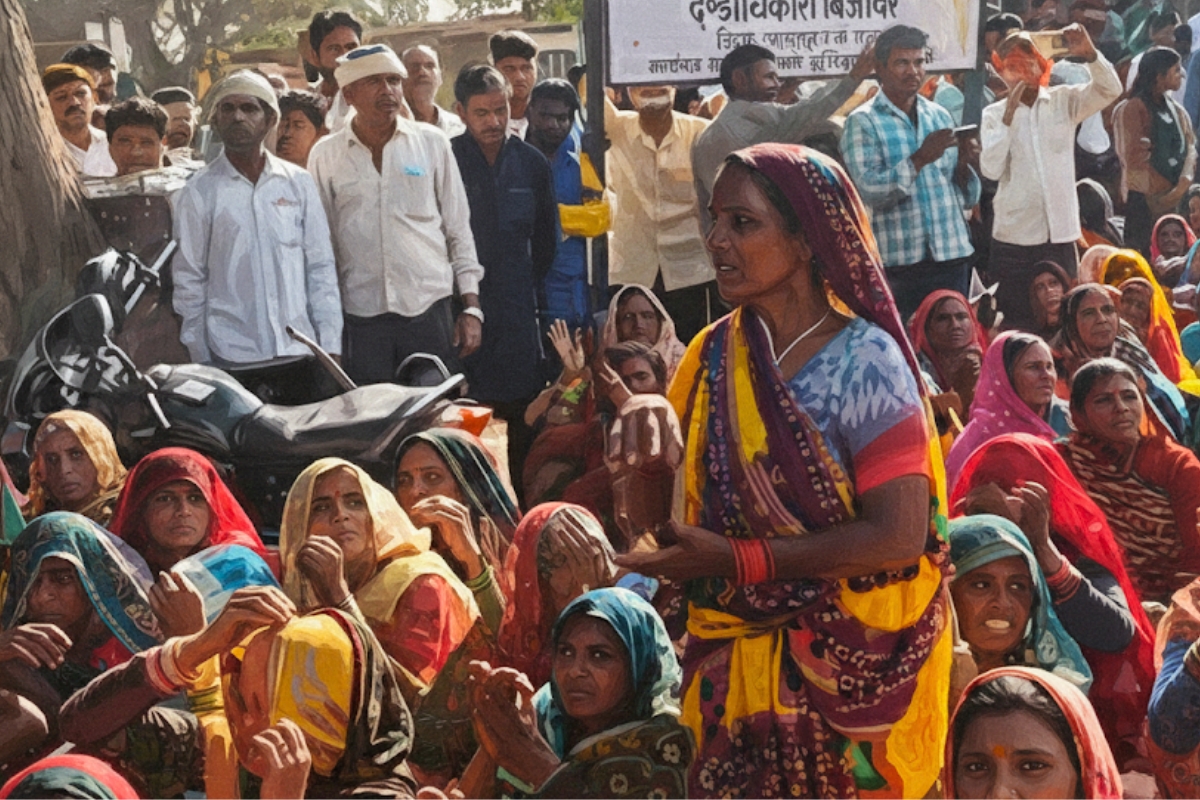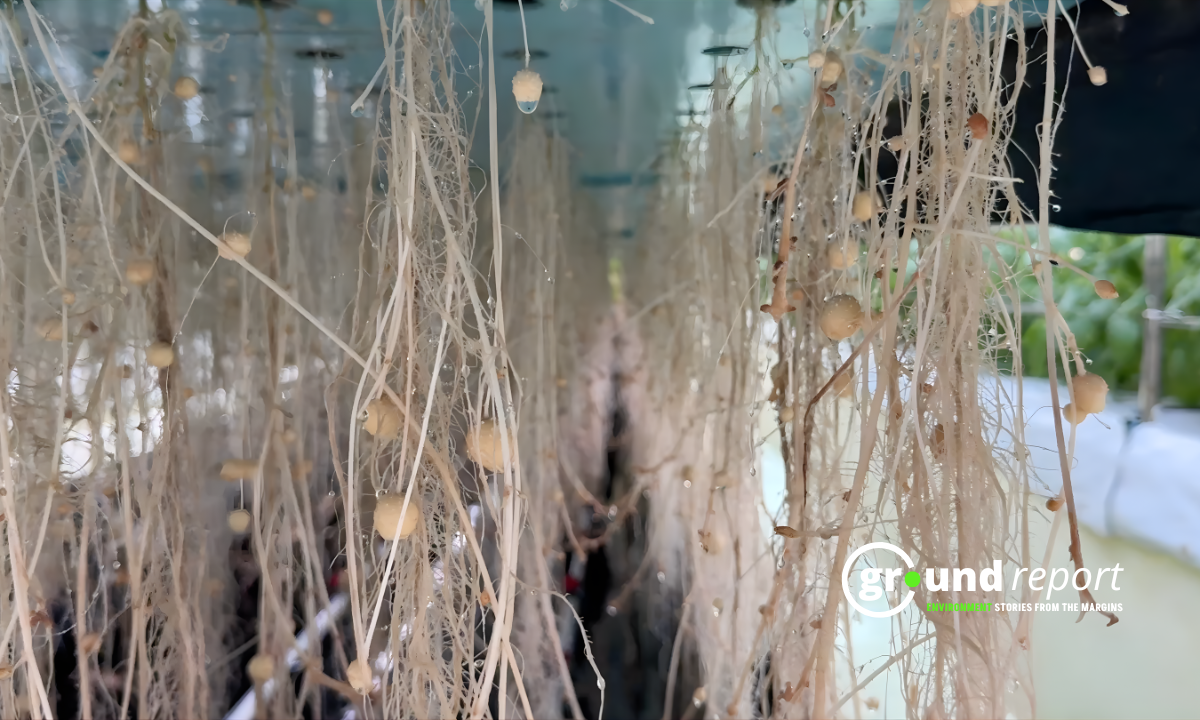At Bedia Mirch Mandi (Bediya Chilli Market) in Khargone district of Madhya Pradesh, rows of women sit amidst mountains of fiery red, cloth masks tied over their faces. Their nimble fingers move with practised precision, separating good chillies from bad as the pungent air around them fills with coughs every few seconds.
“We’ve grown used to it,” says Subhadra, her eyes watering slightly as she maintains her steady rhythm. She works from 8 AM to 5 PM for a daily wage of ₹300 ($3.60), with no health benefits or safety measures despite the obvious hazards.
These women form the backbone of India’s second-largest chilli market. The Nimar region’s distinctive chillies, now nominated for a geographical indication (GI) tag, have gained international recognition through the government’s “One District, One Product” initiative. With a formidable heat index of 80,000 SHU units and 0.50% capsaicin content, these prized chillies require meticulous handling.
During peak season, Bedia Mandi dispatches 5,400 quintals daily to outside markets. Madhya Pradesh contributes nearly 16% of India’s total chilli production, with Khargone district alone cultivating chillies across 28,300 hectares.
But behind these impressive statistics lie hidden human costs.
Rising Temperature
The summer months bring particular hardship. As temperatures soar to 48°C (118°F), the women continue sorting under the open sky, in extreme heat, surrounded by chilli dust that irritates skin, lungs, and eyes. For Subhadra, who left her alcoholic husband, this painful work represents her only source of income.
Children accompany their mothers to the mandi—a stark reminder that these women shoulder both financial responsibilities and household duties. The seasonal nature of the work means this income lasts only three to four months, after which they must seek alternative employment.
Every year, hundreds of migrant workers join local labourers at this 40-year-old market. Despite government investment of crores of rupees in expanding the mandi, basic facilities like clean drinking water and functional toilets remain inadequate. Migrant families endure months in makeshift tents and shanties.
The journey of the red chilli—from farm to your tadka, gravy, pickle, or chutney—passes through these women’s hands. Their stories remain largely untold, their labour invisible to consumers who enjoy the final product.
As Subhadra looks ahead to increasingly hot workdays, she adjusts her mask and returns to sorting. The question of feeding her family outweighs the discomfort.
This is not just about the red chilli on your plate. It’s about acknowledging the hands that bring it there.
Support us to keep independent environmental journalism alive in India.
More Video Reports
Mahseer saviors struggle as conservation funds dry up
Sexed Semen: Madhya Pradesh determining calf’s gender
Biaora battles severe sanitation issues, residents demand action
Fertilizer shortage disrupts rabi sowing for Madhya Pradesh farmers
Follow Ground Report on X, Instagram and Facebook for environmental and underreported stories from the margins. Give us feedback on our email id greport2018@gmail.com.
Don’t forget to Subscribe to our weekly newsletter, Join our community on WhatsApp, and Follow our YouTube Channel for video stories









